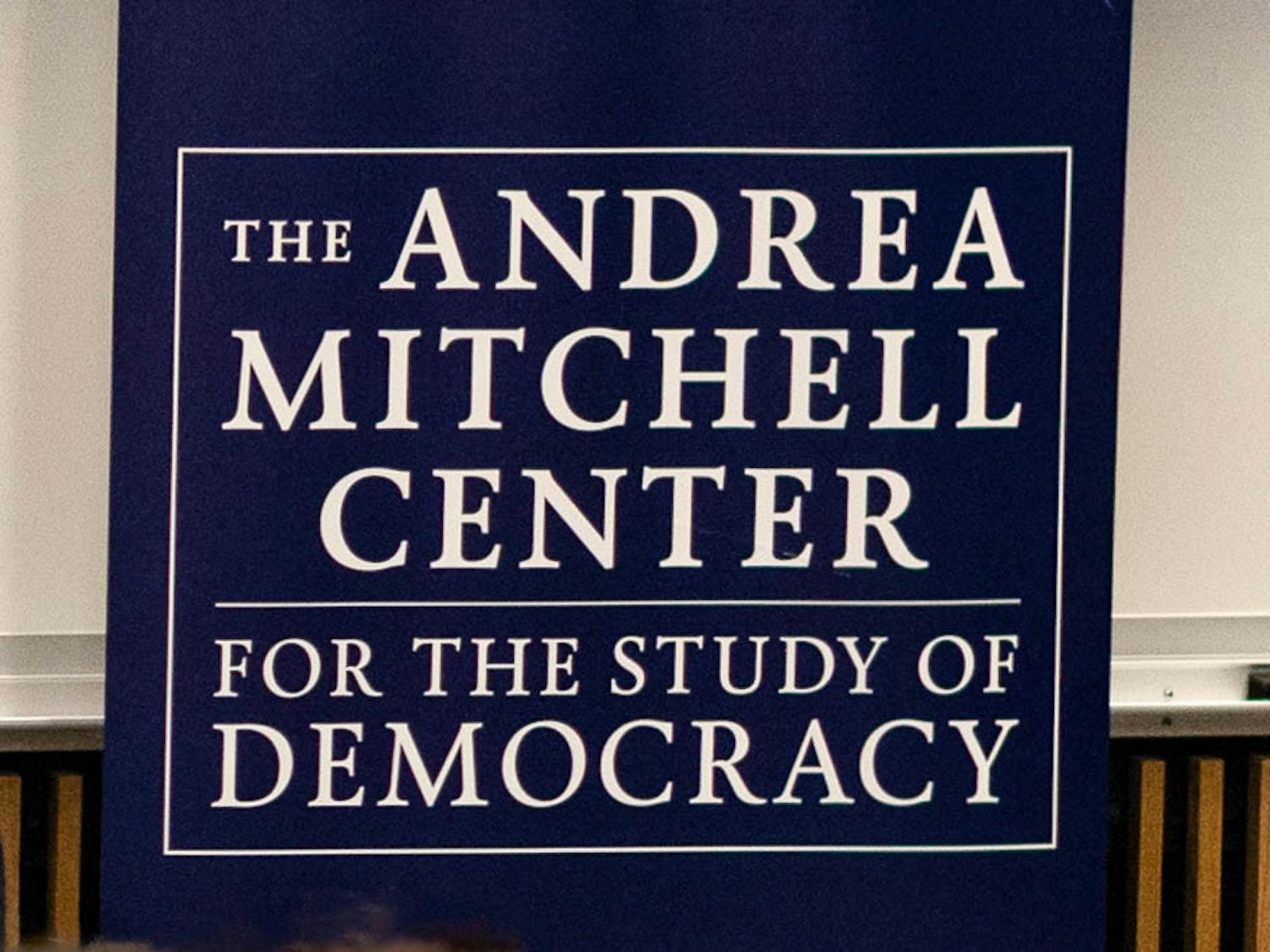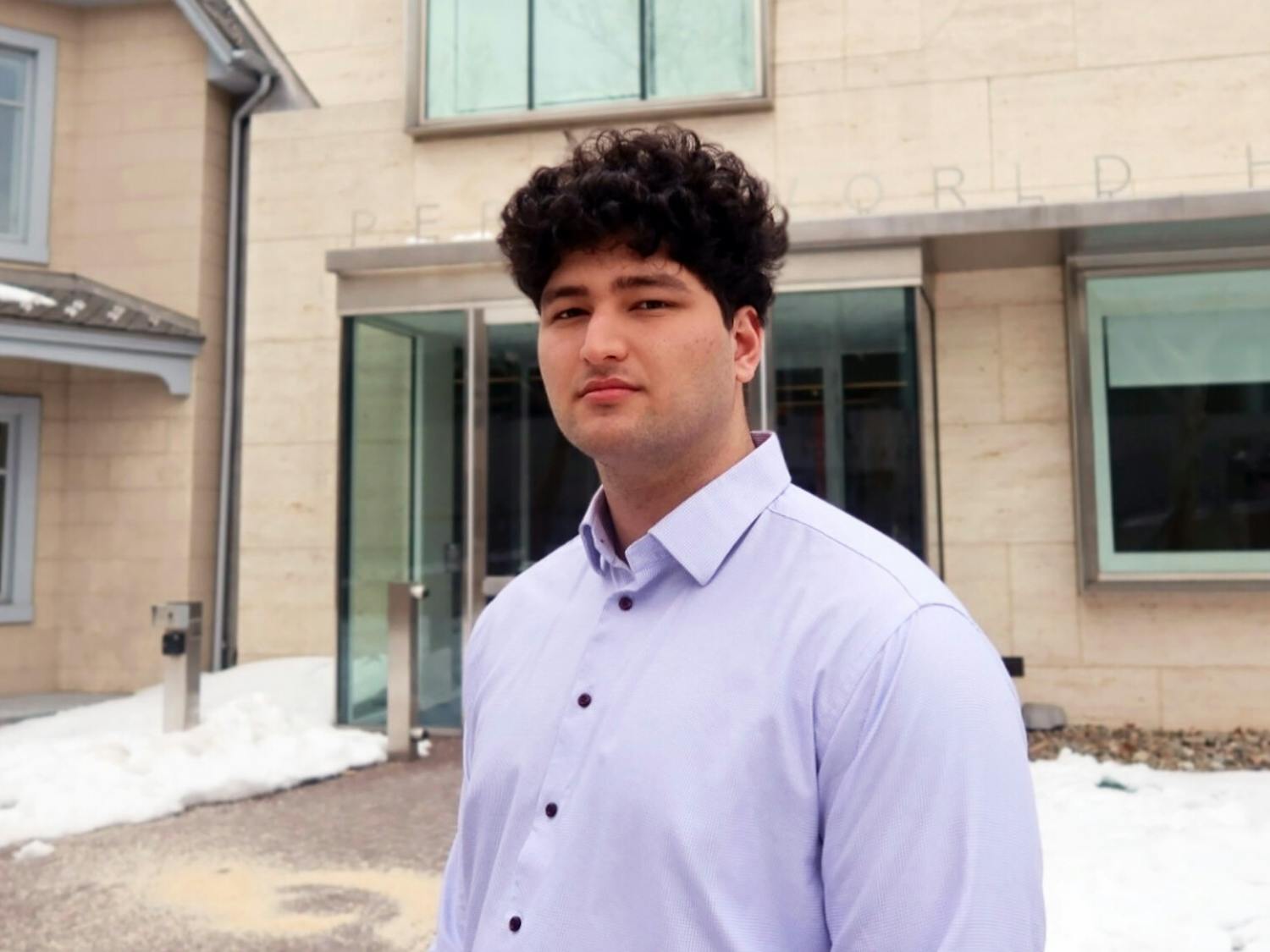It's not American Express, but soon, you may not be able to leave home without it. Students may someday use their PENNcards to purchase sweatshirts from the Book Store and milk from WaWa. They may run their identification cards through a reader that will allow them to do their laundry -- without the hassle of getting change. They will circumvent long lines at the Bursar's Office by using their card to get information on their financial status. The only place they probably won't be able to use it is at the Chinese food trucks on the street. Although officials stress that a system with such an extensive capability may not be implemented for several years, they said the technology for a one-card system already exists. But as the University develops plans for the "cashless environment," administrators and students are questioning the impact of such technology on personal freedom and privacy. Despite concerns that the card could create a "Big Brother" environment -- where officials would know where students are spending their money -- both students and administrators say the system's benefits would outweigh its dangers. · While support for a one-card system seems widespread, no timetable for implementation has been set and some officials say it could take years to make the all-encompassing card a reality. But they say that the University is already well on its way to expanding the PENNcard's functions. The PENNcard serves both as a visual identification card and, through the magnetic strip on the card's back, a means of access to the University's main database. The database tells card readers who is allowed to enter residence and dining halls and other buildings. The card became more central in students' lives about five years ago, when Dining Services began using the card to monitor entrance into dining halls, according to Hospitality Services Systems and Purchasing Director Frank Neithammer. And in the intervening years its role has expanded dramatically. Currently, the PENNcard electronically controls access to residence halls and the University Museum, as well as to dining facilities. It is also used as a library card. Senior Vice President Marna Whittington said last month that she wants to implement a one-card system because it would offer convenience, safety and improved service. "It could make life a lot easier for everyone," Whittington said. "The goal is ease of transactions across our large University as well as giving us a good way to secure buildings." She added that the PENNcard, which is held in different forms by all faculty, staff and students, could facilitate parking and after-hours access to some buildings. "A one-card system could allow us to keep the openness we have on campus and still let us provide access to buildings," the senior vice president said. Whittington added that by promoting a cashless environment, the card could make the University community less vulnerable to crime. But as of yet, there is no timetable for expanding the card's functions, Whittington said. Information Systems Specialist William Davies, who helps coordinate planning for the card system, said last month that there are numerous issues -- concerning privacy, extent of services and other aspects -- which need to be worked out before any concrete steps are taken. "It could be five years, 10 years, 15 years to get all the facilities," Davies said. "It's one thing to have the card. It's another thing to have all the things under the hood that you want the card to do." But he added that the possibilities are endless. "It is in our best interest to have less cash about," Davies said. "I couldn't imagine any facility or service that couldn't make use of that capability." Hospitality Services' Neithammer said officials must determine how extensive the one-card system will be. "There needs to be a happy medium where we aren't locking you up in campus behind concrete walls, but we keep you safe," he said. Neithammer said he does not know whether students will readily accept the expansion of the one-card system because each card transaction is recorded. But he said that across the country several cards, including money access cards, leave a trail of card holders' transactions. "Once you use a card, you have a permanent record," Neithammer said. "Big Brother's already there. How far that goes is the big question." · Hospitality Services Executive Director Donald Jacobs said last month the card's possibilities are almost endless, suggesting that washing machines could be operated and could even dispense soap with the PENNcard. The PENNcard could also be used by students to obtain information on their financial status at the University. Associate Vice President for Finance Frank Claus said last month that a one-card system could help to eliminate long lines at student financial service offices. Claus said students could use the card to access personal information via telephone or a personal computer. An information network, with numerous confidentiality controls, could answer students' questions, leaving more staff members free for individual counseling on more complex problems. "It may be a more efficient system by letting us have a more efficient use of resources," Claus said. "Students could have a network of transaction capability that would be better than a credit card and better than cash." Claus estimated that a no-frills, extensive one-card system would cost less than $1 million. He said he would like several services to be incorporated under the PENNcard by next fall, but that planning is still in the "very early stages." · The main factor in determining the success of a one-card system is the willingness of students to use it, Claus said. "I don't believe there are major obstacles, except if there's no market," he said. He said planners will try to gauge the popularity of a one-card system, possibly through questionnaires or the newly-formed Student Advisory Committee for Student Financial Services. Planners said they think some students, faculty or staff members may feel uncomfortable that many of their transactions would be recorded in the University's database. They also believe this unease may grow as the system expands. "There may be a perceived loss of individuality," Hospitality Services Executive Director Jacobs said. "There may be a perceived loss of privacy." He added that the system is not meant as a means of increasing control of information but only to further convenience and safety. "Some people view it as a restrictive system," Jacobs said. "I feel it allows you to do much more . . . I view it as a way of allowing me to be better." Information Systems Specialist Davies said he believes that although the general population accepts and uses credit cards, "there are people who won't touch credit cards. Some think they're evil." Associate Vice President for Finance Claus said the University has always held privacy and confidentiality as top priorities, adding that in any new system, internal controls would ensure that information about a student's financial status would only be available to those privy to the information. "The University, by virtue of its relationship with its students and staff, knows a lot of things about the people," he said. "That data is very sacred." Several students said last week that they were not overly concerned with the privacy issue, adding that the benefits of a one-card system would outweigh the costs. Wharton senior Stephanie Francis said she felt a one-card system and cashless environment would be both more convenient and would help make the area safer. She added that although privacy needs to be maintained, "students would always have the option of not using the PENNcard" to make their purchases. Fifth-year Engineering graduate student Michael Eckert said that he would like to see a one-card system at the University. Eckert, who attended Tulane University as an undergraduate, said the school had a small-scale system which allowed students to charge performing arts tickets and make similar purchases on the Tulane card. He added that not many people at Tulane objected to the system, saying "it's no more Big Brotherish than any credit card." Eckert also said that under the system, parents rather than students often ended up footing the bill. Second-year Communications graduate student Richard Kramer said last week that planners must build in ways to safeguard students' privacy, adding that some aspects of privacy are often not protected. He said student data should not be sold to outside sources wanting the information for marketing purposes. "Are they going to find a host of record club advertisements in their mailbox?" he said. He added that there is a danger that computer experts could tamper with the system.
The Daily Pennsylvanian is an independent, student-run newspaper. Please consider making a donation to support the coverage that shapes the University. Your generosity ensures a future of strong journalism at Penn.
Donate







